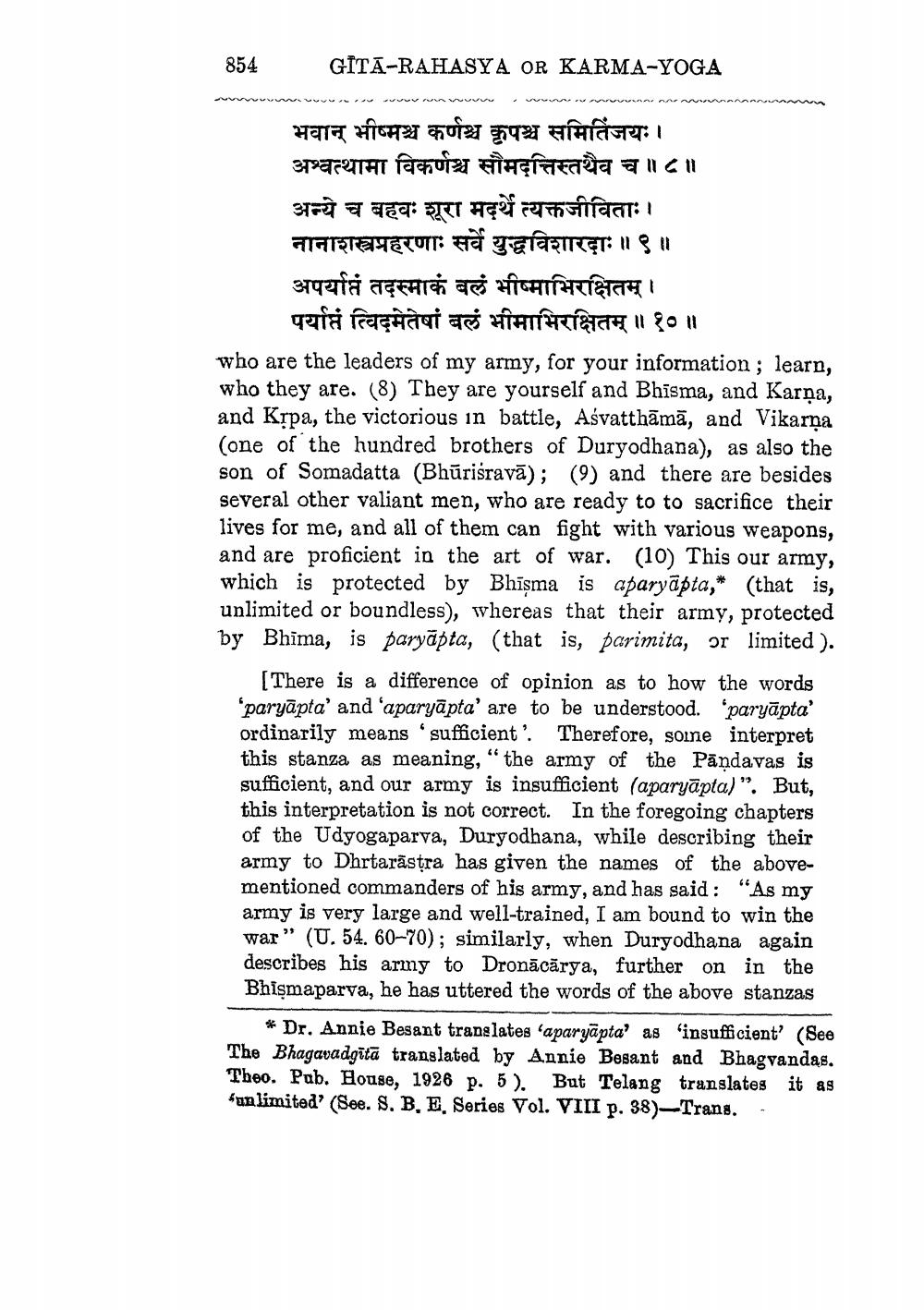________________
854
GITA-RAHASYA OR KARMA-YOGA
भवान् भीष्मश्च कर्णश्च कृपश्च समितिंजयः । अश्वत्थामा विकर्णश्च सौमदत्तिस्तथैव च ॥ ८ ॥ अन्ये च बहवः शूरा मदर्थे त्यक्तजीविताः । नानाशस्त्रप्रहरणाः सर्वे युद्धविशारदाः ॥ ९ ॥ अपर्याप्तं तदस्माकं बलं भीष्माभिरक्षितम् । पर्याप्तं त्विदमेतेषां बलं भीमाभिरक्षितम् ॥ १० ॥
who are the leaders of my army, for your information; learn, who they are. (8) They are yourself and Bhisma, and Karṇa, and Krpa, the victorious in battle, Aśvatthāmā, and Vikarṇa (one of the hundred brothers of Duryodhana), as also the son of Somadatta (Bhūriśravā); (9) and there are besides several other valiant men, who are ready to to sacrifice their lives for me, and all of them can fight with various weapons, and are proficient in the art of war. (10) This our army, which is protected by Bhisma is aparyapta,* (that is, unlimited or boundless), whereas that their army, protected by Bhima, is paryapta, (that is, parimita, or limited).
[There is a difference of opinion as to how the words 'paryāpta' and 'aparyāpta' are to be understood. 'paryāpta' ordinarily means 'sufficient '. Therefore, some interpret this stanza as meaning, "the army of the Pandavas is sufficient, and our army is insufficient (aparyāpta)". But, this interpretation is not correct. In the foregoing chapters of the Udyogaparva, Duryodhana, while describing their army to Dhrtarastra has given the names of the abovementioned commanders of his army, and has said: "As my army is very large and well-trained, I am bound to win the war" (U. 54. 60-70); similarly, when Duryodhana again describes his army to Dronācārya, further on in the Bhismaparva, he has uttered the words of the above stanzas
* Dr. Annie Besant translates "aparyäpta' as 'insufficient' (See The Bhagavadgita translated by Annie Besant and Bhagvandas. Theo. Pub. House, 1926 p. 5). But Telang translates it as "unlimited' (See. S. B. E, Series Vol. VIII p. 38)-Trans.




